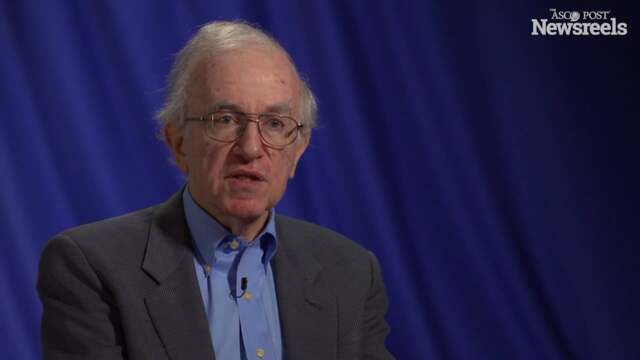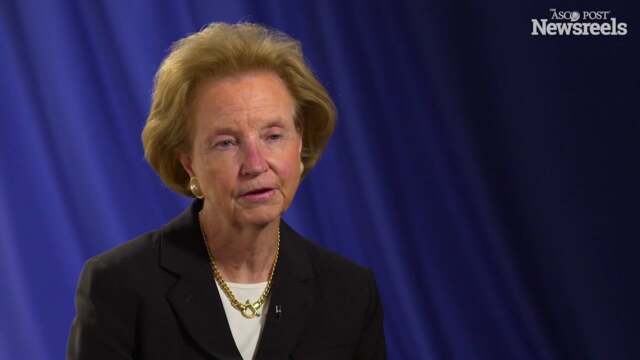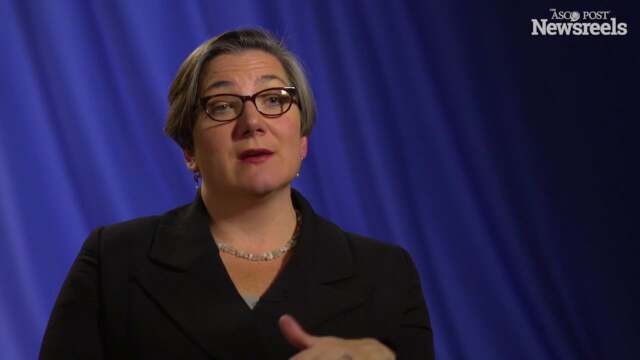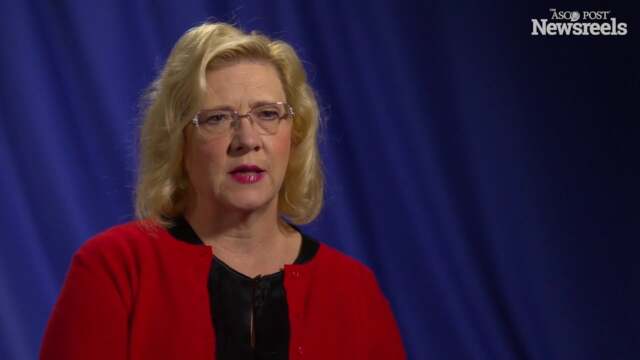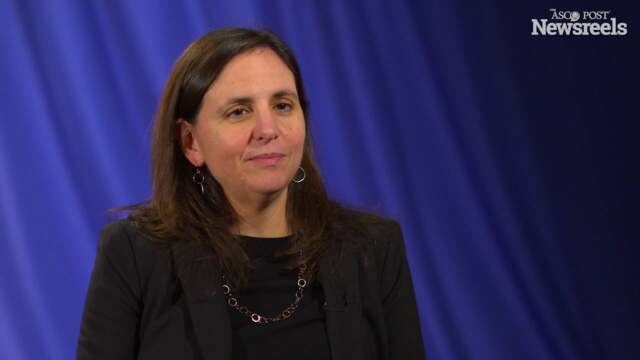Anthony L. Back, MD, on Improving Communication Between Patient and Provider
2015 Palliative Care in Oncology Symposium
Anthony L. Back, MD, of Seattle Cancer Care Alliance, summarizes a general session on best practices and novel tools for enhancing communication between patients and oncology providers (Abstracts 8,9, 39).
Lawrence H. Einhorn, MD
Lawrence H. Einhorn, MD, of Indiana University Simon Cancer Center, discusses the ways in which a dedicated palliative radiation consult service can improve the quality of palliative cancer care (Abstract 110).
Kathleen Foley, MD
Kathleen Foley, MD, of Memorial Sloan Kettering Cancer Center, discusses the challenges of integrating palliative care in areas without sufficient resources or health-care infrastructure.
Vicki Jackson, MD, MPH
Vicki Jackson, MD, MPH, of Massachusetts General Hospital, summarizes her keynote lecture (plenary talk).
Betty Ferrell, PhD, RN
Betty Ferrell, PhD, RN, of City of Hope, discusses two papers that look at an important issue from different perspectives: depression and anxiety among family caregivers of patients with advanced cancer, and the link between oncologists’ dispositional affect and depressive symptoms in their patients with metastatic cancer (Abstracts 224, 214).
Jennifer S. Temel, MD
As Steering Committee Chair of this year’s symposium, Jennifer S. Temel, MD, of Massachusetts General Hospital, discusses the goals and highlights of the meeting.
